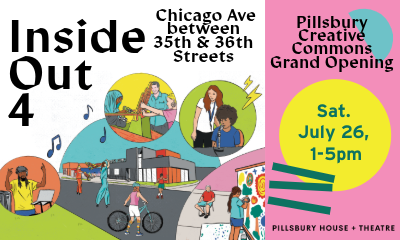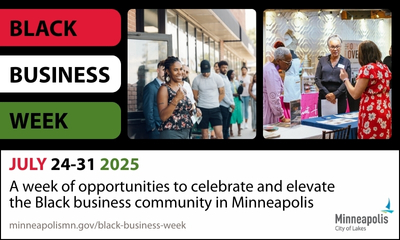
Kristen Clark, former Assitant Attorney General for the DOJ’s Civil Rights Division, Outlines The Federal Consent Decree.
(Photo/Clint Combs Southside Pride)
BY CLINT COMBS
On Jan. 6th, inside the Minneapolis council chambers, the city and the Department of Justice (DOJ) reached a historic settlement — a federal consent decree aimed at reforming the Minneapolis Police Department following the killing of George Floyd.
The settlement includes bans on neck restraints and First Amendment protections for journalists and activists – something not included in the MDHR agreement. While this milestone signals progress, lingering questions remain about the DOJ’s protracted timeline in hammering out such agreements nationwide. U.S. District Judge Paul Magnuson has yet to sign the agreement.
Shaila Dewan’s New York Times Christmas Eve article briefly addressed concerns that then-President Joe Biden’s DOJ was slow in hammering out agreements that would legally bind corrupt police departments to reform their unlawful and racists practices.
“You know, asking the question isn’t going to change the terrible situation we’re in where you’re really pushing up against the wall and trying to get this done before the new administration comes in,” said Christy Lopez, a former DOJ Civil Rights Litigator who investigated Ferguson police after the death of Michael Brown. “It might prevent this from happening in the future.”
The DOJ under Assistant Attorney General Kristen Clarke and Attorney General Merrick Garland launched investigations into 12 police departments but only two agreements were reached: Louisville and Minneapolis. (Mind you judges have yet to sign off on these agreements.)
Michelle Gross, President of Communities United Against Police Brutality echoed concerns outlined in Dewan’s article.
“What I know is this, we need to get this consent decree to happen before and it needs to be signed off by a judge before January 20,” said Gross. “Only thing I care about right now, if there are some of these issues with the monitors, whatever those can be dealt with later. But right now, we are on a timeline, and a very fast timeline.”
Jaylani Hussein, President of Minnesota’s Council for American Islamic Relations (CAIR) chimed in: “That was by intention.”
“That was by intention by who?” I asked.
Both argued Mayor Frey.

Minneapolis Mayor Jacob Frey Speaks to reporters about the DOJ’s Federal Agreement.
(Photo/Clint Combs Southside Pride)
“They put us in a position where the incoming Trump administration would remove the opportunity from the community to request stronger provisions in the dissent decree,” Hussein added. “Now we can’t ask for that, because asking for that means it will happen during the Trump administration, with a new DOJ handler, that DOJ handler could scrap this entire thing.”
“The night of the election,” Gross added, “In my mind, I could see Jacob Frey doing handsprings in his office.”
“They’re not going to be able to negotiate consent decrees in a lot of cities where there should be or file suit, where cities refuse to negotiate consent decrees, and there’s a pattern or practice of misconduct, and that should be untenable for anyone”, Lopez said. “They’re making findings of patterns of violating people’s rights, and they’re not going to be able to obtain any remedy. That’s a real problem, and they should be, they should be really looking at how this happened.”
Trump’s new DOJ team froze the remaining litigations into police departments according to two memos obtained by the Associated Press. The memos say that the White House ordered the Civil Rights Division not to file any new complaints against police departments.
The White House, “may wish to reconsider” walking away from agreements made the past 90 days, the memos read.
Below is a Q and A from the press conference on Jan. 6, where city and DOJ officials constantly sidestepped questions on the timing of this agreement:
Ernesto Londoño, NYT – Q: Is there anything holding the incoming Trump administration back from just saying they’re not interested in pursuing this and opting out of the continued enforcement of this agreement.
Clarke – A: “I can’t speak to the future, but the Justice Department has always been focused on ensuring compliance with the Constitution, ensuring compliance with federal law, ensuring public safety. That’s what brought us to the table today.”
Clint Combs, SSP – Q: What took so long between the time Trump won in November to right now to get a consent decree? Because right now, it seems like it’s being played out in the public that the consent decree was just dealt with today amid Trump’s election victory. Do you feel like there was a delay between the time Trump won, till the time you guys got the decree in place?”
Clarke – A: “The Justice Department carries out its work without regard to the electoral calendar, free from political interference. We have been hard at work with city officials negotiating a consent decree that works to address the problems that we identified here in this community. It was hard work, but I know it is a document that the mayor and police chief and the Justice Department are incredibly proud of.”
Mayor Frey: “I’ll add, I gave very clear direction to our entire administration to not just get an agreement done with urgency, but to get an agreement done right, to get something that set a standard that everybody understands, a standard that is not going to shift with political wins or changes of administration at the city or federal level. This agreement is rock solid, and our commitment to it, regardless of the circumstances, is also rock solid.”
(Frey’s answer makes subsequent rounds on FOX as AP reports potential plans to ditch the agreements. “I have NO doubt that the U.S. DOJ worked with incredible urgency. I also have no doubt they would never say in public that the city dragged its feet,” Stacey Gurian-Sherman of Minneapolis for a Better Police Contract replied via email. “Read between the lines – Clarke never backed up that the city acted with the same urgency despite Frey’s claims.”)
Liz Sawyer, Strib – Q: “You said that the DOJ acted swiftly in this case, but there was about a year in between the findings report coming out and the city saying that formal talks began when a draft consent decree was offered to them, and then negotiation, formal negotiations started. Is that typical? And why was there such a year-long break?
Clarke – A: “You know, our work to ensure constitutional policing has been and remains one of our highest priorities, achieved not just through our pattern and practice investigations, but our prosecutions of officers who violate the law, our use of other vehicles such as Title Seven and Title Six of the Civil Rights Act and so much more. It was important that we get it right. We owe that to people here in Minneapolis. This was not a race to the finish line. We put forth a consent decree. Once we got the job done, once we, in partnership with the city, felt that we had mapped out a remedial roadmap designed to address the violations that we identified here.”






















